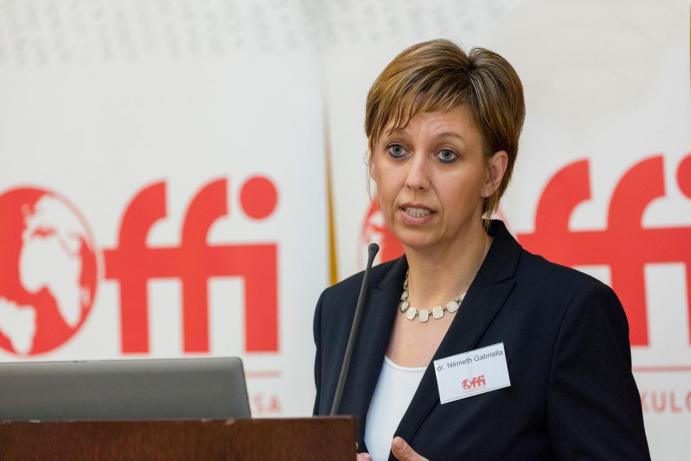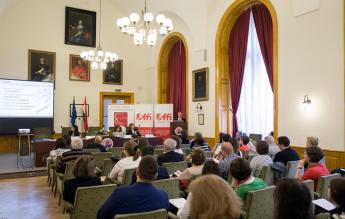
The joint professional conference of the Institute of Translation and Interpreting of the Faculty of Humanities of Eötvös Loránd University and OFFI Ltd. was held within the framework of the series of events “Hungarian Translators’ and Interpreters’ Day” for the 18th time on 07-08 April 2016. The first day of the two-day conference was organized by ELTE University, and the second by OFFI Ltd.
OFFI’s theme titled “Translation in Public Administration” attracted a full-house. Several students of translation and interpreting attended the conference, as translation in the field of public administration requires such complex knowledge that training for this filed cannot start early enough.
CEO Dr. Németh Gabriella talked about the renewal of OFFI in a presentation titled “Tradition and Modernity in the 147 OFFI years”, and Deputy CEO dr. Révész György held an entertaining presentation on the possible government expectations related to translations.
dr. Tamás Dóra, OFFI’s terminologist and associate professor at the Faculty of Humanities at ELTE University, presented the latest developments of our IUSTerm terminology database, whereas dr. Galli Péter, Head of the Languages Department at OFFI outlined the fundamentals of translation in public administration.
Jancsi Beáta, who works at the Directorate-General for Translation of the European Commission, provided interesting insight into web translations, whereas FTMT member Dr. Dudits András spoke about translation as a good service.
As a conclusion of the ‘translation trade day’, an interesting round table discussion was held with the title “Translation in Public Administration as a Good Service” where not only did different opinions and viewpoints collide, but the raised questions were also answered.
In the mid-session coffee break and during the reception concluding the day organized by OFFI, highly acclaimed professionals met with representatives of famous educational institutions, which can form the basis for future long-term professional cooperation.
